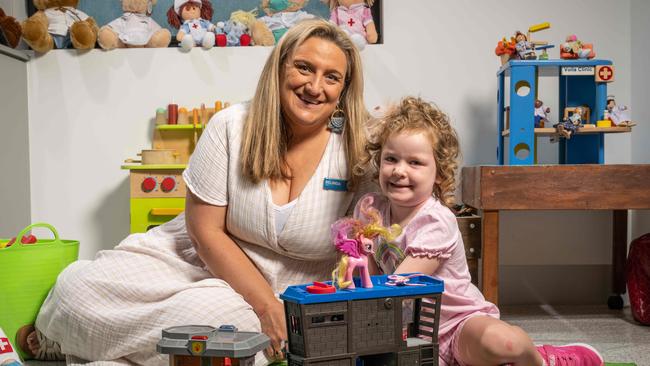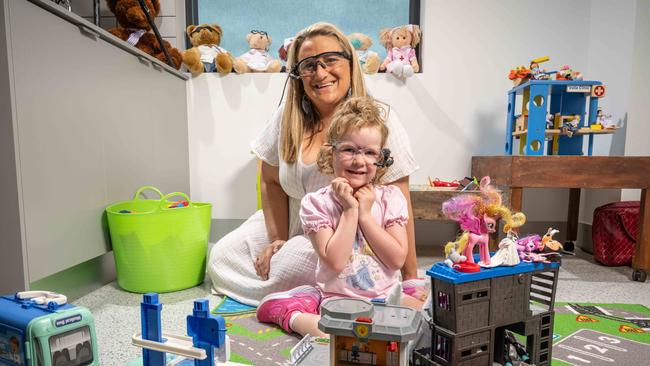Deakin study aims to reduce kids’ fear of vaccinations
A study aiming to reduce fear of vaccination among kids is recruiting Geelong and Surf Coast children.

Geelong
Don't miss out on the headlines from Geelong. Followed categories will be added to My News.
A study aiming to prevent fear of vaccination among kids is recruiting Geelong and Surf Coast children.
The Deakin University research uses special eye-tracking technology and is seeking to determine how play therapy can help kids cope.
Study participant Bonnie Schram undertook play therapy sessions before and after her four-year-old vaccination last year as part of the study.
Mum Kate Schram, of Highton, said coming into the immunisation, she was not sure how her daughter would go.
“We were just conscious that she might not be as calm and relaxed but she was fabulous,” Ms Schram said.
She said Bonnie “absolutely loved” play therapy.

As part of the research trial at Torquay Medical Hub, children between three and six who are scheduled for their four-year-old vaccine or require a flu or travel vaccine will wear iPupilX glasses, special eye-tracking technology developed at Deakin.
The technology will assess the child’s neurobehavioural response during the vaccination, through eye movement including changes in the pupil.
Kids take part in a small amount of play therapy sessions over a two-month period surrounding the immunisation.
Lead researcher Belinda Dean, a PhD candidate in the play therapy team at Deakin’s School of Health and Social Development, said:“Other studies have shown that the more play-based preparation that children are able to participate in the better we can helpthem through potentially scary medical procedures.”
“Ultimately, we could train nurses, and other health workers, in how to use medical play-based skills,” she said.
Deakin said the study would provide first-of-its-kind scientific data to build better understanding across two related areas: children’s fear and coping response to vaccination, and how play therapy can help children better prepare for, and recover from, confronting medical procedures.
The technology monitors kids during both play and vaccinations.
Ms Dean said all children responded to immunisation differently.
“These different responses are important to understanding whether play-based therapy can make a difference,” she said.
“We want to prevent fear around vaccinations because it can have long-term impacts.
“We need children to feel comfortable seeking medical treatment when they need it.”
While the study is looking at vaccinations specifically, the research team believes the results could be applied across healthcare more generally.
“Play is children’s language,” Ms Dean said.
“It is an important way to help children feel prepared for medical procedures, which in turn helps them feel more calm and less anxious, no matter the procedure.”
For more information about participating in the trial email Ms Dean at bjmc@deakin.edu.au or fill out a registration form online.
More Coverage
Originally published as Deakin study aims to reduce kids’ fear of vaccinations





